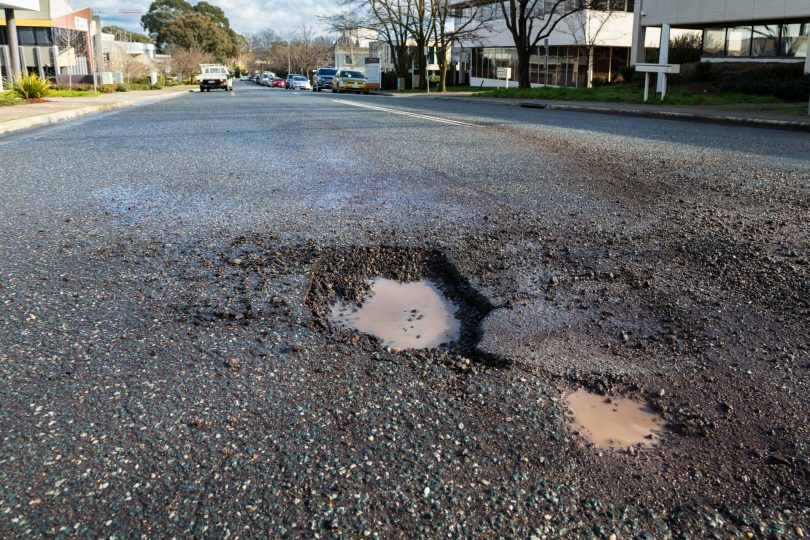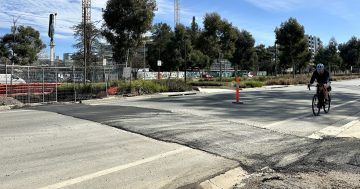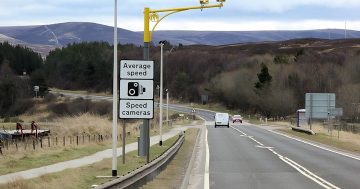
The Opposition is calling on the government to fix the Territory’s growing number of potholes. Photo: Michelle Kroll.
Canberrans are frustrated with the state of the roads around town and the proliferation of potholes after months of wet weather, exacerbated over the holiday period by more rain and storms, the Opposition says.
According to Shadow Minister for City Services Nicole Lawder, cars are almost disappearing into large, dangerous holes on the roads, and it’s high time the government did something about it.
She’s heard from several constituents who have had to fork out for car and tyre repairs arising from close encounters with potholes.
“For example, Sulwood Drive alongside Mount Taylor is in an appalling condition. Some potholes have been recently filled, and with more rain, are already crumbling again,” Ms Lawder explained.
“In one case a ‘hazard ahead’ sign has been put into place where a hole is so large that you can hear the noise of cars scraping into and out of it, or else cars must veer onto the other side of the road to avoid the hazard.”
Yet this isn’t the only road of concern, Ms Lawder said.
“There are examples like this all across Canberra.”
Potholes open up as water seeps into cracks and erodes the base layer of the pavement.
Canberra Toyota Belconnen service manager Scott Attwell explained that the damage caused to tyres from potholes could range from an easy-to-fix replacement tyre to something more severe and costly.
“If you hit a pothole, it can cause damage to tyres. It can also break the cords in the sidewalls and bend the wheels if you hit the rims,” Mr Attwell explained.
But more extensive damage can be recorded if you hit a “big-enough pothole,” he noted.
“It can cause suspension damage and throw your wheel alignment out.”
It’s difficult to put a price tag on how much repairs for these kinds of accidents cost, Mr Attwell explained, “but it can start to add up pretty quickly if it’s a rim or anything more than that”.
The government has previously acknowledged the difficulty wet weather poses to repairing roads.
According to the most recent data available, pothole repairs almost tripled from 2719 in the drier 2019-20 financial year to 6375 in 2020-21.
In total, 11,760 square metres of hot asphalt patching works were also completed in the year, an increase of 134 per cent in pothole repairs and a 391 per cent increase in patching works on the previous financial year.
In June 2021 alone, more than 500 potholes were fixed.
In the 2019-20 and 2020-21 financial years, the ACT Government received 61 claims from drivers for damage to their vehicles from potholes and it paid out $37,320.
However, some people whose vehicles have been damaged by potholes have said that making a claim is itself a challenge.
Potholes can be reported to the ACT Government via the Fix My Street portal. In the last financial year, 3297 reports of pothole-related enquiries were submitted, making it the third-most reported-on issue.
















